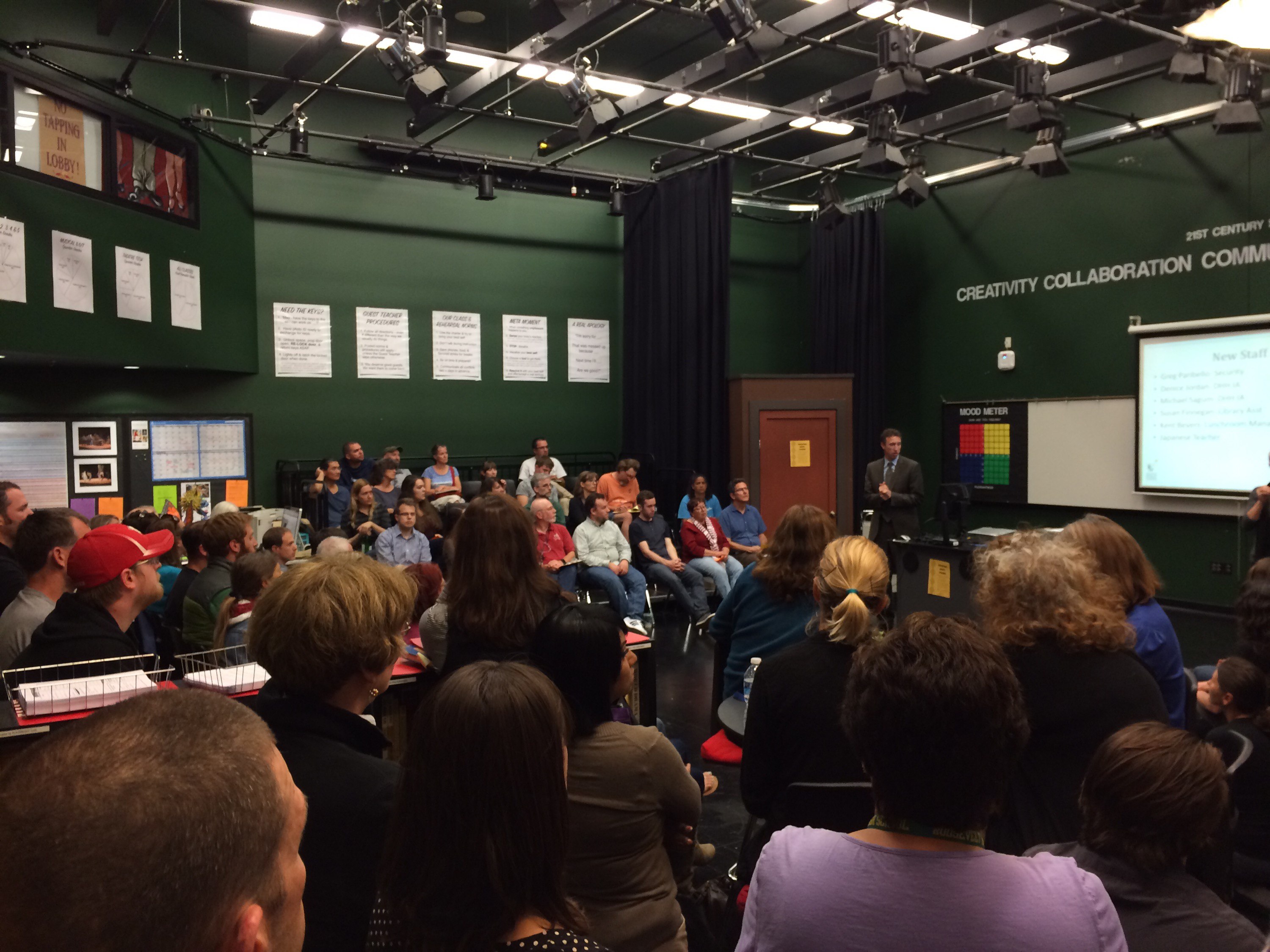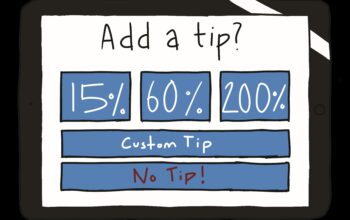At the start of a staff meeting held today in Roosevelt’s Black Box Theater, Principal Brian Vance displayed a roller coaster in the opening slide of his presentation “to show how you’ve probably been feeling lately.” It was an apt analogy. After a week of determined picketing and marching, teachers were elated to hear about a tentative agreement between the district and the Seattle Education Association. The educators would finally be allowed to return to their classrooms, victorious.
However, they were in for much more as some of their feelings turned from joy to disenchantment. The summaries of the contract that had been tentatively agreed on were not what they’d expected. Be it ambivalent or just plain disappointed, many teachers were less than pleased by what the contract offered. The special ed classroom caps were much higher than anticipated and highly unpopular. There was ambiguity surrounding a school day extension in the contract’s third year. Some felt the district had given a lackluster effort for their bargaining.
This isn’t to say everything is bad. Many were pleased by the removal of the student growth rating on teachers’ evaluations as well as the beginning of committees on race and equity in schools. Still, this roller coaster will hit another sharp turn as the SEA votes on whether to accept the contract this Sunday. Should they agree, the strike would end and the school year would go on as planned. If not, the strike continues. What do Roosevelt’s teachers make of the agreement as it is?
Thomas Ledcke
Basically, it’s a good contract, except for special ed. We will have a caseload of 13 students instead of 10 and with overages up to 18. I have overages now so that means that we’re going to have three IAs (Instructional Assistants) which is good, but not enough to support the kids that are in general ed classes. It’s going to be difficult with this current agreement to go along with it and approve it. If we could say we could have 12 students and a 14 cap, that would be fine; but right now, it’s going to be crazy.
Jennifer Spanswick, Special Education
When I started my career, I was an Autism Inclusion teacher. Under this new contract, my program will likely be turned into something called “Access”. In the contract, they’re going to re-title a lot of the special education departments and my ratios go up quite a bit. Under the old contract, my ratio was eight kids to one teacher to two IAs. The new contract will be 13 to one to three, so it’s a pretty big jump. Special Education in the district is already under scrutiny from OSPI for inadequately serving the needs of certain populations of students. This is not going to make it any easier. That’s my reason for voting no [to the contract].
Richard Katz, Social Studies
Initially, I was really excited and relieved [about the agreement] because I really do not want to be on strike. [It’s] not because the issues aren’t legitimate, it’s just really hard to be on strike when I want to be in the classroom. I think, in the long run, [the contract] will benefit students, teachers, and the district. I think the bigger issue is funding coming from Olympia; we’re still chronically underfunded as a state. I think we still have a ways to go with some of the issues like special ed particularly. The special ed numbers were not as generous as we thought they’d be. I’m still a little leery on the 20 extra minutes in the third year. It doesn’t make sense.
Linda Hilliard, Languages
The student day increase was my most confusing point. I don’t really understand that and I’m worried about special education based on what was presented to us. If I lost prep time and worked longer without getting paid for it, I would vote no. I understand, though I don’t know this first-hand, it was the district who didn’t do anything all summer and waited until the last-minute. So at the last-minute, we get this kind of contract where everyone has questions, but we feel under pressure to quickly make a decision.
Karen Grace, Social Studies
I was relieved that there was an agreement because no one wants to strike. We’re educators, we want to be in classrooms, we want to do the thing that we do. So that part is exciting. It was also very trepidatious because [for] the contract that we are going to have to vote on Sunday, we don’t have all the details to it. I still don’t have a copy of it that I can read and that’s very nervous-making. They’re supposed to give us 72 hour to review the contract before we vote on it. They’ve given us summaries, but based on some of what we’re hearing, there are lingering issues that may have not been addressed. But you can’t tell. [The district] hasn’t eclipsed the time allowed yet, but it’s been hard to figure out how to talk about students and parents and the community about it because we don’t even know what’s exactly in it.
Cynthia Jatul, Science
We have a great bargaining team and tons of support so we ostensibly have gotten a great agreement. We just have a summary, but even from the summary, I have gone from being positive and excited about having a tentative agreement to demoralized. The main [issue] for me, is that we have accepted an extended day in the third year of our contract which means students will be here 20 minutes later each day. There’s not a clear articulation of the value of this. I’m part of a big community group that’s trying to change our start times to align with the biology of students and have middle and high schools start later. I’m afraid that this is going to threaten the district’s ability to implement healthy start times since by extending the day; it’s going to make the latest starting schools start at 9:40 and get out at 4:30. That’s going to be really unpopular. It may take something that’s been very popular and helpful to for the health and learning needs of teenagers and scratch it. I’m very upset about that. There’re good things in the contracts, but we were on such a zenith of public support and teacher unity. I have no idea why we took this agreement. I’m prepared to vote no. I think we can and should do better.
Featured Photo: Teachers gather for a staff meeting at the black box theater. While the mood was upbeat, there was little talk of the agreement and what its rejection would mean. Photo by Ira Rose-Kim




http://socialistworker.org/print/2015/09/17/seattle-teachers-can-fight-for-more